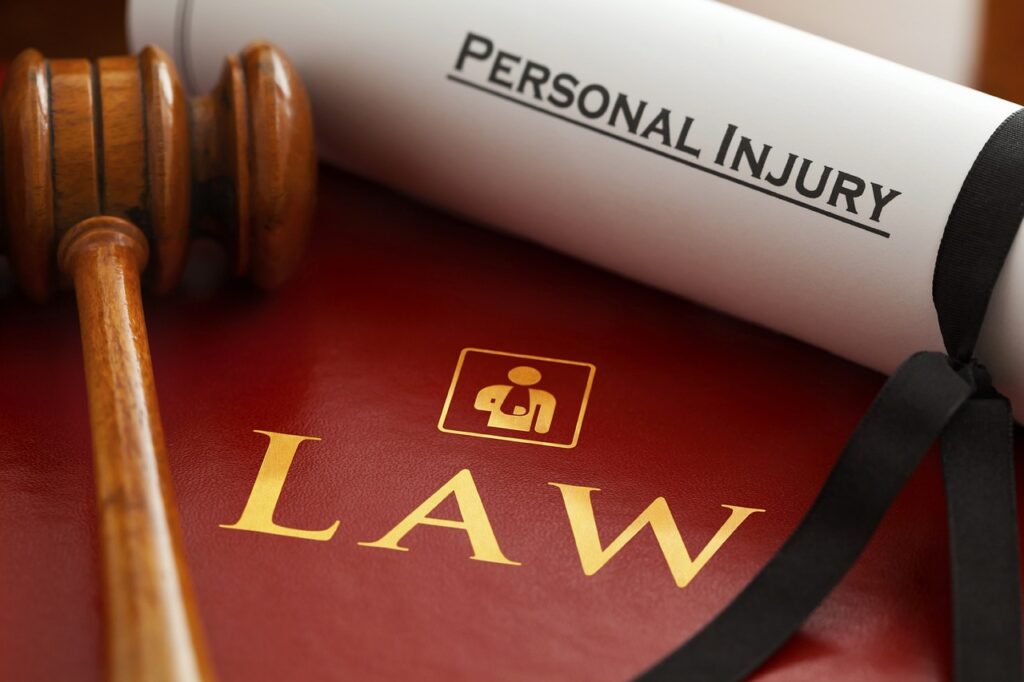Accidents happen unexpectedly, and personal injuries can result from a variety of situations—car accidents, slips, falls, or workplace incidents. When faced with such an event, the immediate focus is often on recovering physically and emotionally. However, understanding your legal rights is also crucial for ensuring that you are properly compensated for your pain and suffering. This guide will provide essential legal tips to help you navigate the aftermath of a personal injury.
Seek Medical Attention Immediately
The first and most important step after a personal injury is to seek medical attention. Even if you feel fine initially, some injuries—like concussions or internal damage—may not present symptoms immediately. A thorough medical evaluation will not only safeguard your health but also serve as vital documentation for any future legal claims. Medical records provide proof that the injury occurred and outline its severity, which can be used to support your case in court or during settlement negotiations.
Delaying medical treatment can harm your case, as insurance companies or opposing legal teams might argue that your injury is not as severe as claimed. To avoid this, ensure that you see a healthcare professional as soon as possible after the incident. Keep all medical reports, bills, and prescriptions, as these can strengthen your claim later on.
Contact a Personal Injury Attorney
One of the most critical steps you can take after sustaining an injury is consulting with a personal injury attorney. Navigating the legal system can be complex and overwhelming, especially when dealing with insurance companies that aim to minimize payouts. Whether you are looking for a personal injury lawyer in Johnson City or any other city, an experienced attorney can help you understand your rights, assess the value of your claim, and negotiate with the responsible party’s insurance company on your behalf. Most personal injury attorneys work on a contingency fee basis, which means they only get paid if you win your case. This arrangement alleviates financial pressure while ensuring you have professional legal representation.

Make sure to choose a lawyer who specializes in personal injury cases and has a track record of securing fair settlements for their clients.
Document the Incident
After an injury, it’s crucial to gather as much evidence as possible to support your version of events. Documentation is key in personal injury cases, as it helps establish liability and the extent of the injury. Start by writing down your recollection of the incident as soon as possible, while the details are still fresh in your mind. Include every pertinent fact, such as time, place, and how the event unfolded.
If possible, take photos or videos of the scene where the injury occurred. Capture any hazardous conditions, property damage, or visible injuries. If there were any witnesses, collect their contact information. Witness statements can play a pivotal role in verifying your account of the incident.
Avoid Speaking to Insurance Adjusters Without Legal Advice
After an injury, the at-fault party’s insurance company will likely contact you to discuss the incident and possibly offer a settlement. While it may be tempting to accept an early settlement, you should exercise caution. Insurance adjusters are trained to minimize the company’s financial liability, and their goal is to settle your claim for as little as possible.
Before speaking with any insurance representative, consult with your attorney. They will guide you on what to say and how to avoid making statements that could harm your case. Any information you provide could be used to downplay the severity of your injury or shift blame onto you. Your attorney will handle communication with the insurance company to ensure that you don’t inadvertently compromise your case.
Keep Track of Your Expenses
One often overlooked aspect of personal injury cases is the financial toll that an injury can take. Medical bills, lost wages, and out-of-pocket expenses can accumulate quickly, leaving you in a difficult financial position. Keeping an organized record of all expenses related to your injury is essential for determining the compensation you may be entitled to.

In addition to medical expenses, document any transportation costs for doctor visits, physical therapy, or other injury-related activities. If your injury has impacted your ability to work, make sure to keep records of lost income, including any vacation or sick days used. All of these details will help your attorney present a comprehensive case when seeking compensation.
Be Mindful of Time Limits
Each state has a statute of limitations for filing a personal injury claim, which is a time limit on how long you have to take legal action after the injury occurs. These limits vary by state and can range from one to six years. Failing to file your claim within this window can result in losing your right to seek compensation.
To avoid missing important deadlines, consult with a personal injury attorney as soon as possible after your injury. Your attorney will be able to advise you on the specific time limits that apply to your case and ensure that all paperwork is filed promptly. Acting promptly will also allow your lawyer to gather evidence and build a stronger case on your behalf.
Handling a personal injury requires a combination of practical steps and legal strategies. Seeking immediate medical attention, documenting the incident, consulting with an attorney, and being cautious when dealing with insurance companies are all crucial actions that can significantly affect the outcome of your case. By following these tips, you can safeguard your rights and improve your chances of receiving the compensation you deserve, all while prioritizing your recovery.
